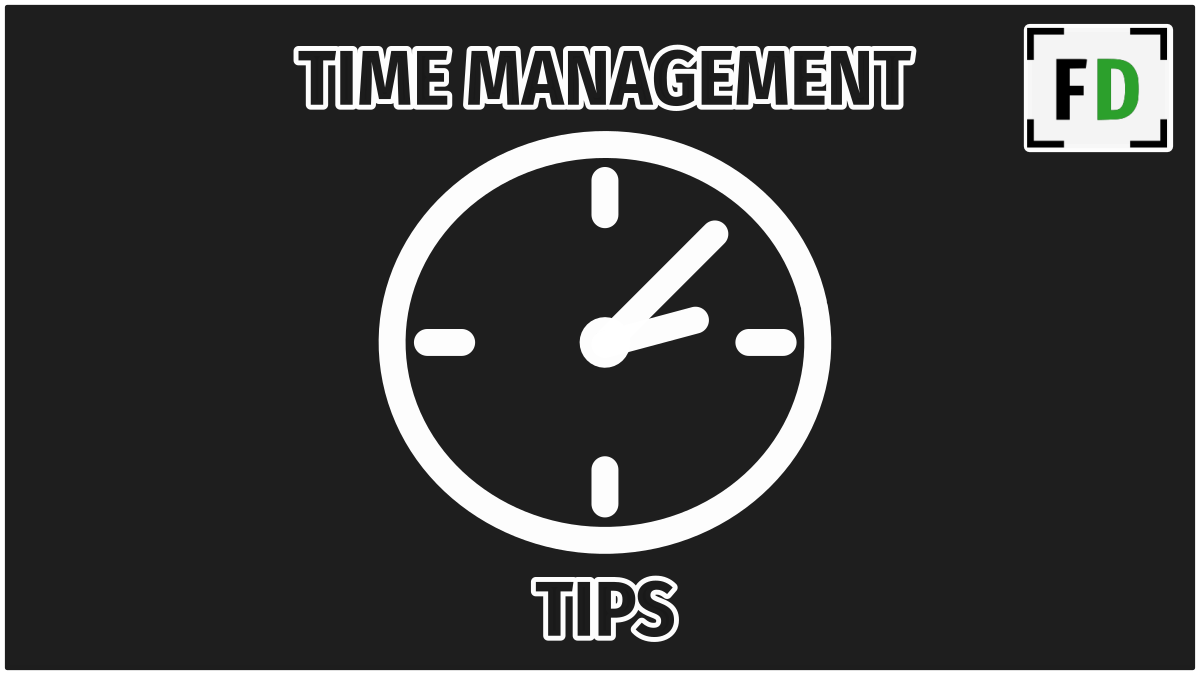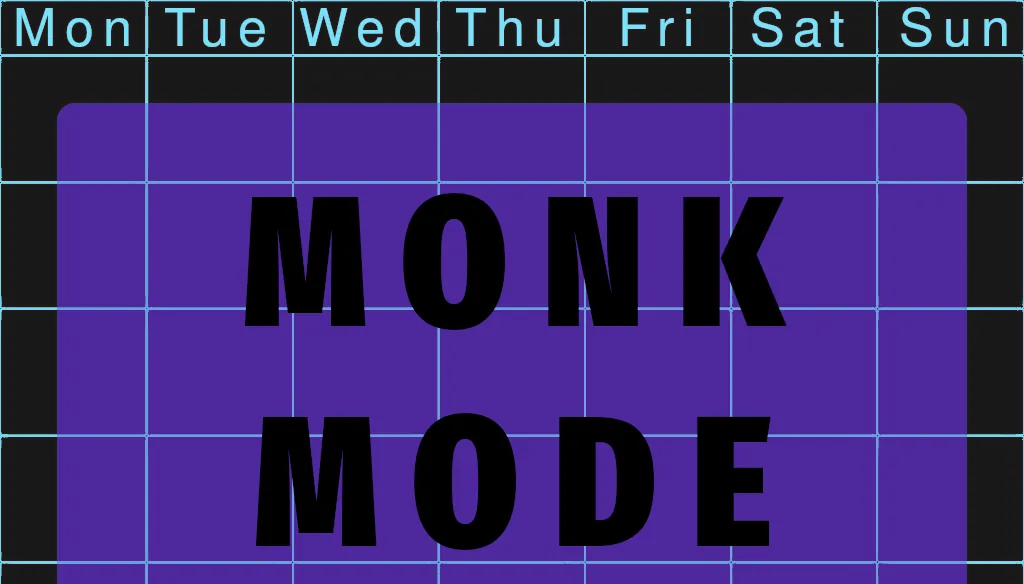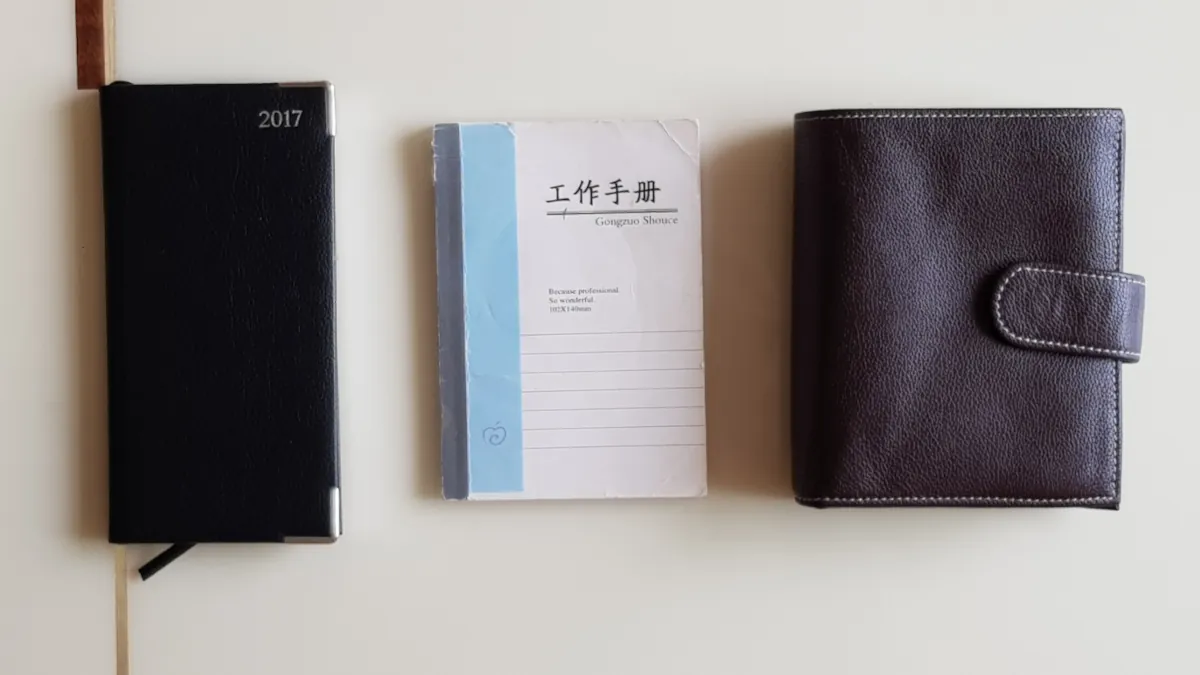“Why do I waste so much time?” There’s an answer to this question, but maybe you’re not ready to hear it. In reality, it’s the wrong question to ask. What you really want to know is how to stop wasting your time. By the end of this article, you’ll know why you waste so much time, how much time you actually waste, and what to do about it.
There are only four steps to becoming a more productive version of yourself.
Table of Contents
- How Much Time Are You Wasting?
- Clarify What Is Wasting Time vs. Being Productive
- Understand Why You Waste So Much Time
- How to Stop Wasting Time
How Much Time Are You Wasting?
After polling his students, Jordan Peterson found that, on average, they wasted between 4-6 hours per workday. He noted, “The answer is something like four to six hours a day, so if your life isn’t everything it could be, you could ask yourself, well, what would happen if you just stopped wasting the opportunities that are in front of you.?”
These were students at the University of Toronto. Do you think you’re more productive than they are? There’s only one way to find out.
The truth is that you’re bad at estimating, everyone is, but when it comes to time, the mind is simply unable to keep track. Everyone’s had the feeling that time has passed quickly when doing something fun or of a 20-minute wait feeling like it’s taking forever. Your mind doesn’t track time like a clock; it isn’t built that way.
So trying to estimate how much time you spent doing a task or how much time you wasted isn’t a great idea. Instead, you must track your time.
You might not care to know exactly how much time you waste; you know you waste too much time and just need a solution; if that’s the case, skip this section and continue with the next. If you want to know (I love data), here’s how to do it.
1. Choose Your Tools
First, decide what you will use to track your time. It could be a time-tracking app, like Toggl; you could use a spreadsheet, your notes app, or pen and paper. Simply copy and paste this list of times into your application. Now you have somewhere to write what you were doing.
6.00 am
7.00 am
8.00 am
9.00 am
10.00 am
11.00 am
12.00 am
1.00 pm
2.00 pm
3.00 pm
4.00 pm
5.00 pm
6.00 pm
7.00 pm
8.00 pm
9.00 pm
10.00 pm
11.00 pm
12.00 pmIf you’d prefer to do this on paper, it’s pretty simple. Take the same list of times as above, but instead of copying and pasting them, write them in your notebook planner or wherever you will record your time.
2. Chose your chunk size
You can’t track every second of your day, so you must decide what unit of time you can track; I suggest you choose one-hour chunks. This means that every hour you write down what you’ve been doing. Even if you’ve done a few things that hour, it’s not hard to recall an hour’s worth of activities.
3. Set a Timer
Don’t expect that you will remember to track your time without a timer!
Even with the timer, you still won’t do it every time. “I’ll just finish this then, I’ll track my time,” I try to resist that urge.
4. Tracking your time changes what you do.
Tracking something changes how you act. You see this in diets; when you start tracking your calories, you automatically start eating healthier. The same will be true when you track your time. If you have a strict scientific mindset, you may see this as a negative, but isn’t your goal to waste less time? Just roll with it.
Tracking your time may also be a little disruptive to your workflow. You’re trying to be productive but get interrupted by the alarm every hour, destroying your focus and reducing productivity. It’s true this will get in the way, but you only have to put up with it for a day.
5. Make a Graph
Once you have all the data collected from a full day or two’s time tracking, create a graph so you can visually see how you’re spending your time. You might think this step is unnecessary busywork, but there is a massive difference between the number 47% wasted time on a screen and a pie chart showing you unmistakably that you wasted half your day (by extrapolation, half your life.)
Once you have your results, they mean nothing if you don’t do something about them.
Clarify What Is Wasting Time vs. Being Productive
Is watching TV wasting time?
It’s an excellent question to ask yourself, and the answer isn’t as straightforward as you may think.
- It’s 9.30 am, and you have a project you need to finish before lunch – yes, watching TV is undoubtedly a waste of time.
- It’s 9.30 pm, and you’ve worked all day, you’re exhausted and just want to sit and relax, is watching TV a waste of time? That’s a question you must answer yourself.
Before trying to stop wasting so much time or become more productive, you must know what you class as wasting time.
This is where your time-tracking exercise will help. Look back at it and find all the actions that were ‘wasting time,’ those are likely your most common time wasters. Add those to a list and any other activities you often waste time doing.
Next, you must know what productive things you can do; again, look back at your time tracking and see what you were doing that wasn’t wasting time; start with those.
Here are the most common time wasters:
- You waste time chatting with friends online when you should be working.
- You check email multiple times a day.
- Play Solitaire or Minesweeper.
- Scrolling Facebook, Instagram, or Twitter (now X.)
- Watching TV.
- Playing videogames.
Understand Why You Waste So Much Time
David Allen, author of Getting Things Done, lists a few reasons why people don’t do the things they should.
- They don’t know what they need to get done
- They haven’t clarified the outcome
- They haven’t made it actionable
- They don’t have what they need to do the task
I want to add a fifth to this list:
- They don’t have the right mindset
Let’s explore each of these ideas quickly and create an actionable plan for you to stop wasting so much time.
You Don’t Know What You Need to Get Done
Before you can do something useful with your time, you have to know what you need to get done. In practice, this means you need at least a to-do list, but really, you need a productivity system.
A productivity system is more than just a place to hold your to-dos for the day. It’s a place to plan your life goals, create projects that you want to work on to help you achieve those goals, and list actions that you can do today to make progress on those projects.
There are so many things you want to do, but without them written down somewhere, it becomes impossible to remember them and even harder to decide among them. Sure, you know you have that report to do today, but somewhere inside, you also want to start learning Spanish, build an ice cream business, or whatever dreams you may have. If you don’t start moving on those soon, it will be too late.
A brain dump is an excellent way to start, whether or not you want to create a productivity system. A brain dump will get all those ideas onto a page (or a file); from there, you can look through them, knowing you have captured everything you want to do.
Prioritize everything you dumped into your inbox by first separating things you want to do this year, and stay focused on those.
You Haven’t Clarified the Outcome
Clarifying the outcomes will instantly make your goals, projects, and tasks more realistic. “I want to learn Spanish” probably isn’t true; what’s the outcome? “I want to speak Spanish.” That’s better, but could you clarify it further by being more specific? “I want to get conversational enough to hang out with my Spanish friends, know what they’re talking about, and contribute to the conversation.” That’s a clear outcome!
By clarifying the outcome, you make the goal and what you need to do to achieve it much more obvious. You don’t need to learn to read Spanish if your goal is to chat with your friends; you don’t need to write either. So the Spanish class you were considering enrolling in might not be for you if they spend half the time learning to read and write. Focus on your outcome; then, you won’t waste time.
You Haven’t Made it Actionable
Now you have your outcome, you need to make it actionable. David Allen recommends one question: “What’s the next action?”
If you have a list of items like “Jenny’s Birthday,” “Get laptop repaired,” and “Buy stuff for Friday night,” you have a list of things you can’t do.
- What do you need to do about Jenny’s birthday?
- What do you need to do to get the laptop repaired?
- What do you need to buy for Friday?
These may be simple questions to answer, but if you need to think and make these decisions in the middle of the day, it will use brainpower you could be using on something useful. Studies show that thinking and making decisions cause exhaustion, so the last thing you want is a list of decisions to make.
When you’re tired, you’re more likely to procrastinate, get distracted, and become unproductive.
When you make the list, make the decision.
Continuing with our Spanish example, what next action should you take with the outcome in mind? Finding a one on one teacher online? Buying a grammar book, downloading a vocabulary list? Whatever the next action is, write it down somewhere so you don’t forget it if you don’t plan to do it immediately.
You Don’t Have What You Need to Do the Task
You’ve listed the things you want to do, defined their outcomes, and even made them actionable, but you still might not be able to do the task, depending on the context. If you’re at work in the office, it probably just isn’t appropriate for you to start calling Spanish teachers, or if you don’t have time to go to the bookstore now, you can’t buy the book you want.
But after work, you’ll drive past that store, or have time to make some calls, so you must ensure you’ll remember the tasks at that time. How? Make an “at home” list.
With a list of tasks you can do at home, you can add items to it all day long, knowing that when you get home, you won’t waste your time because you have actionable, outcome-specific things to do.
You might want to make other context-specific lists such as “at office” or “at computer,” check out this list of contexts you might want to use.
Your Mindset Sucks
Time management isn’t the only thing you need, though. I’ve used techniques like GTD and the Pomodoro Technique for over a decade, and they work, but there is one thing that can still derail you, mindset.
There are days when you wake up and feel exhausted already. You look at your list of things to do, and everything repulses you. You might be able to force yourself to check a few things off, but you won’t have a productive day.
Many people believe that self-discipline is about forcing yourself to do things you don’t want to when you’re feeling rough, but there’s a more innovative way to think about it.
If you are truly disciplined, you won’t wake up feeling exhausted.
- You’ll get enough sleep.
- Won’t drink too much
- You’ll get regular exercise, so you always have energy
- You’ll eat well to fuel your body correctly
If you do these four things to a half-decent standard, you’ll wake up feeling great, ready to work hard.
How to Stop Wasting Time
So here it is, follow these steps, and you’ll stop wasting so much time, and with a bit of practice, you’ll become a productivity powerhouse.
- Track Your Time
- Decide what counts as wasting time
- Do a brain dump and capture everything you want to do in life
- Clarify the outcomes
- Make them actionable
- Ensure you have what you need to do the task
- Build self-discipline so your mindset is strong
Once you can avoid time-wasting activities, you’ve reduced your distractions, and built habits that encourage willpower, you still have to do the work. That’s something you must find within yourself, not only to maximize your productivity but also so you don’t waste your life.








